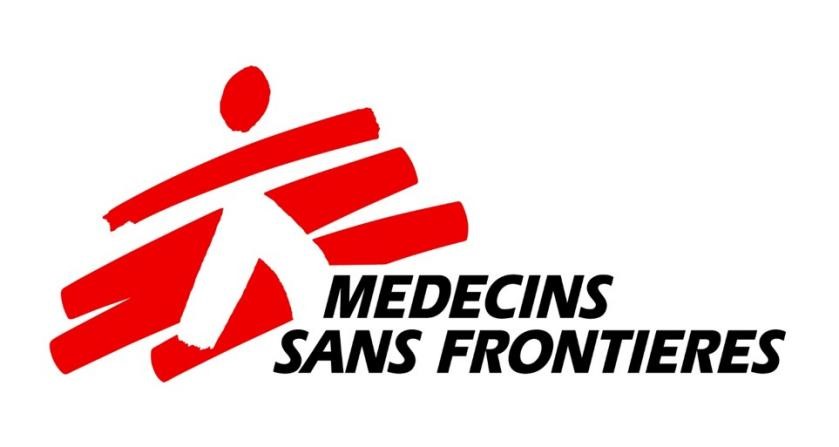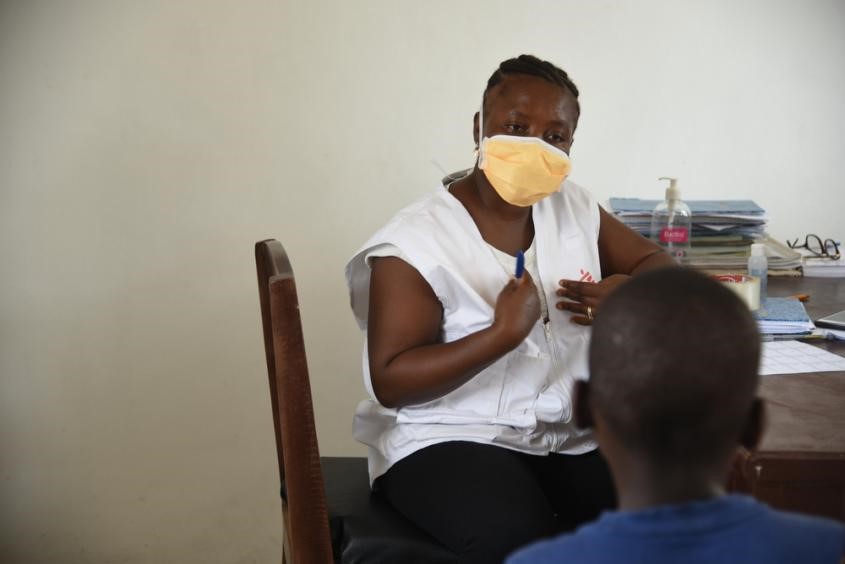AYV News, October 22, 2024

In a new report released last week, called Test, Avoid, Cure TB in Children (TACTiC), Médecins Sans Frontières/Doctors Without Borders highlights the urgent need to increase worldwide support to children with Tuberculosis (TB), who are being left behind in the global effort to end the disease.
The report surveyed the implementation of the latest 2022 guidelines from the World Health Organization (WHO) in 14 countries, including Sierra Leone.
In the case of Sierra Leone, the report shows the country is presently 88 per cent aligned with the WHO recommended policies for diagnosis, prevention, and treatment of drug-sensitive and drug- resistant TB in children.
The alignment of the national Sierra Leonean TB guidelines with the WHO recommendations has been achieved thanks to the fruitful collaboration between MSF, other partners, and the National Leprosy and Tuberculosis Control Programme (NLTCP) of the Ministry of Health (MoH).
In a statements, the organisation said: “Our collaboration started in 2019 and has focused specifically on Bombali district. Sierra Leone is among the 30 countries with the high TB burden, with an estimated incidence rate of 286 per 100,000 people in 2022 according to WHO. That year, 2,400 children in the country were estimated to have fallen sick with TB, with 39 per cent of them estimated to have missed out on diagnosis and treatment”.
MSF has supported the NLTCP with the implementation of the WHO treatment decision algorithms since 2022, which allows for clinical diagnosis of children, as well as the use of urine and stool testing to improve efficacy of testing children. The creation of a sample transport system was also put in place to ensure samples from across the district are tested on molecular diagnostic machines at the Makeni Regional Hospital.
After the implementation of the new diagnostic tools, the number of children under the age of 15 enrolled for treatment in the district’s drug-sensitive TB programme increased substantially from 163 in 2020 to 384 in 2023.
“Many children were being misdiagnosed and treated for pneumonia or other lung infections,” says Alimamy Sesay, a community health worker for the MoH at the Makeni Regional Hospital. “After a week, they used to come back to the hospital as they were sick again. Some children even died. However, as soon as we started diagnosing them correctly using the clinical decision algorithm and provided them with anti-TB medication, we began to see great improvements in their health and quick recovery. Many more children’s lives have been saved thanks to a timely diagnosis through this algorithm.”
Due to the high difficulties in confirming tuberculosis in children, the WHO recommends that healthcare workers enrol children on TB treatment if they are showing symptoms based on clinical criteria, using the treatment decision algorithms. The guidelines also encourage testing of stool or urine samples, which are more effective methods of diagnosing TB in children as opposed to sputum testing, which is used for adults.
“My son was five months old when I realised, he was coughing a lot and had a high fever,” says Fatmata Mansaray in Binkolo village, Bombali district. “I took him to the hospital, but they told me he was malnourished and gave me peanut paste [ready-to-use therapeutic feeding] to feed him. He continued coughing so I went back to the hospital, and they sent me to a clinic where they asked me to give a small stool sample from my son so he can be tested for tuberculosis. The results were negative, but my son was placed on TB treatment. He stopped coughing a few months after I started giving him the medicine and got better.”
In April 2024, MSF and NLTCP widened their activities in Bombali and started adding new preventive tools to reduce the likelihood of developing TB among high-risk patients. The implementation of the Tuberculosis Prevention Therapy first started in two direct observation therapy sites and is now rolled out to a total of eight sites. The initiative provides children and adults living with HIV, and those under the age of fifteen who live with people affected by TB, with TB preventive medication for a few months, which reduces the risk of them developing the disease.
Despite the efforts and the success of these new approaches, now integrated in the new national TB guidelines in March 2024, national roll out and implementation of these guidelines in primary and secondary healthcare facilities across the country remains challenging. The training and mentoring of healthcare workers to integrate these new tools in their daily work, and the availability and usage of supporting materials such as diagnostic charts for their usage in all health facilities needs to be scaled up to overcome implementation gaps.
“International partners and donors need to financially and operationally support the Ministry of Health in Sierra Leone in ensuring a nationwide roll-out and implementation of these guidelines in primary and secondary healthcare facilities,” says Dr. Bukola Oluyide, Medical Coordinator of MSF in Sierra Leone. “The great results we have witnessed in Bombali district prove that these guidelines are effective. More children will be diagnosed, treated, and prevented from TB if it is implemented nationwide.”
MSF has been collaborating with the Ministry of Health through the Sierra Leone National Leprosy and Tuberculosis Control Programme (NLTCP) since 2019 to improve access to TB diagnosis and treatment in Bombali district. The project has a dual focus: to treat patients with drug-resistant TB using a decentralised, outpatient model of care, based at the Makeni Regional Hospital; and to treat drug- sensitive TB, with a focus on children under 15 years, at 15 Directly Observed Therapy (DOT) sites located in primary healthcare facilities across the district.

